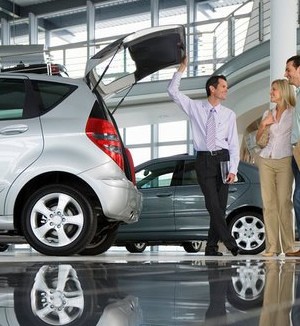- Can Your Kids Sue You for Putting Baby Photos on Facebook?
- Woman Sues Starbucks for $5M Over Too Much Ice in Its Drinks
- Lyft Settlement rejected by Judge Chhabria
- RackSpace Hosting - Class Action Investigation
- Nexus 5 WiFi Problem Investigation
- How to Lemon a Car
- Ashley Madison Hack Leads to a $578 Million Class Action Lawsuit
- Touch Of Modern Being Sued for SPAM
- Do You Trust Doctors More Than Lawyers? Here’s Why You Shouldn’t
- Uber’s $250,000 Campaign Contribution to Eric Garcetti Might Be Holding The Mayor Back
How to Minimise The Risks Of Buying A Used Car

With the (CAB) Citizens Advice Bureau, the Trading Standards Institute, personal injury solicitors and a range of other organisations across the UK taking part in a month-long campaign to raise awareness of the risks involved in buying new cars and the potential for unsafe cars to lead to road traffic accident claims, it is useful to consider what people’s biggest fears are about the second-hand vehicle market.
Research by the AA has shown that while 27% of drivers intend to buy a second-hand car in the next year, only 6% plan to buy a new one. This is despite the fact that 37% of respondents to an AA Cars poll said that doing so is risky.
Respondents’ main concerns were the following:
- That the vehicle will be unreliable due to faulty mechanics
- That the car was a write-off
- That the vehicle is stolen
- That the motor has outstanding mileage
- That the mileage is false
Second-hand cars that do not meet the standards people should expect will not only put them at risk of road traffic accident claims but also puts the general public at risk. People must not be complacent when purchasing used cars and must take care to ensure the vehicle is fit for purpose.
People who buy a car through a used car dealer have better recourse if things go wrong than those who buy cars privately. While there are bargains available in the private used car market, and while people may find a car that they love privately, dealers are the safest way to buy used cars, offering the least risk with the most legal protection.
Under the Sale of Goods Act, car dealers must ensure that their vehicles sold reach a satisfactory quality, are as described and are fit for purpose. If the dealer fails to do this, then they are liable for any faults the vehicle has and could even be liable in road traffic accident claims or personal injury claims that were caused by their negligence. The only way the dealer can avoid liability is by drawing the buyer’s attention to the fault and ensuring they are fully aware of it.
As a result of the Consumer Protection from Unfair Trading Regulations 2008, car dealers are also forbidden from:
- Using aggressive sales techniques
- Not provided sufficient information for the buyer to make an informed decision
- Providing the false information to the consumers
- And acting in the manner a reasonable person would find unacceptable
- Falsely claiming to have approvals, authorisations or accreditations
When buying a used car, the AA advises people to ask the following questions and to receive written responses. This will provide them with good protection should a road traffic accident claim occur due to problems with the car.
- Has the dealer carried out history, mileage and mechanical tests?
- How many owners has the car had? Who were these owners?
- What is the dealer’s complaints procedure? Are they a signatory to a code of practice?
- Has the vehicle been modified?
- Has it been in a motor vehicle accident and repaired after the accident?



You must be logged in to post a comment Login